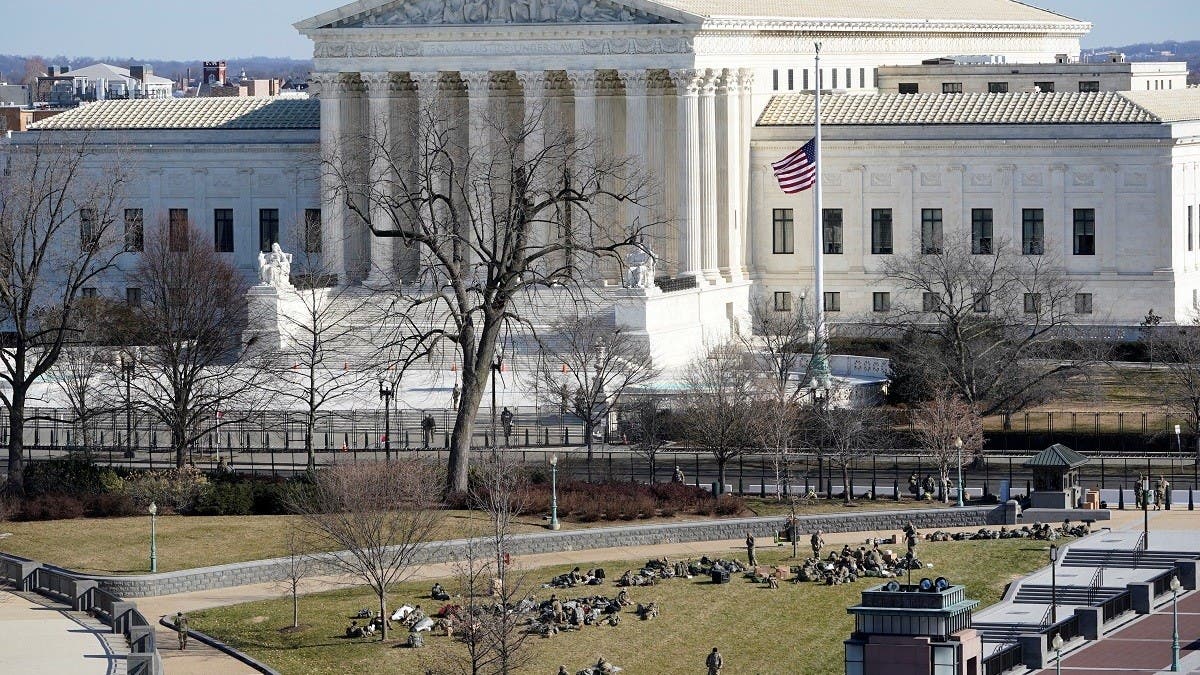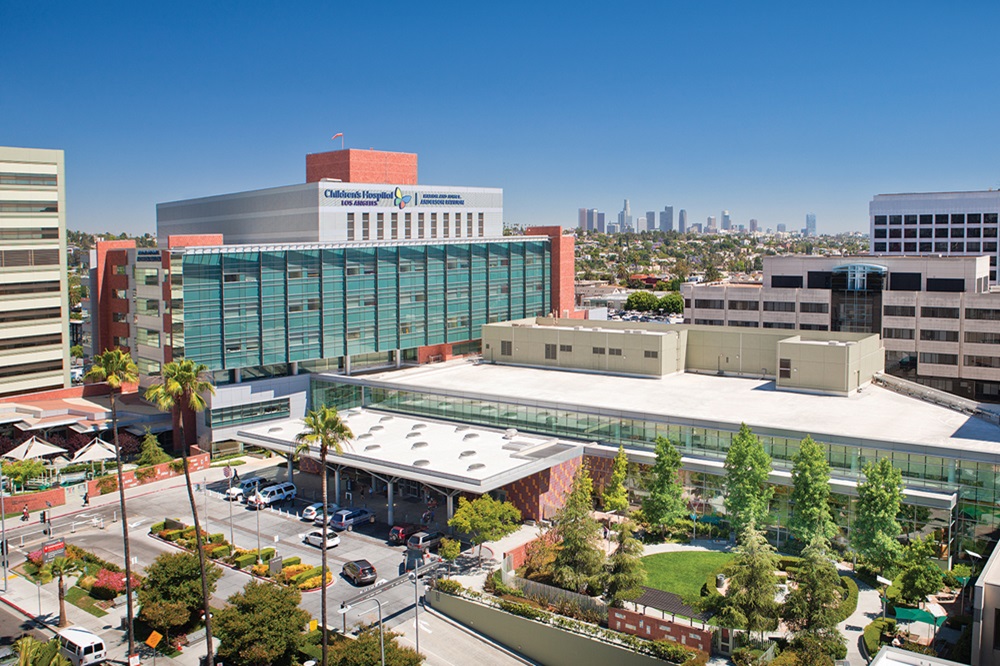US Supreme Court justices on Friday grilled Republican state officials and business groups seeking to block President Joe Biden’s pandemic-related vaccine-or-testing mandate for large businesses and pressed the administration to justify the policy at a time of surging COVID-19 cases nationwide.
The nine justices were hearing at least two hours of arguments in two cases that present a test of presidential powers to combat a public health crisis that has left more than 830,000 Americans dead.
Read the latest updates in our dedicated coronavirus section.
The second case involved the administration’s vaccine requirement for healthcare facilities.
The White House has said the two temporary mandates will save lives and strengthen the US economy by increasing the number of vaccinated Americans by the millions.
The challengers have argued that the federal government exceeded its authority by imposing requirements not specifically authorized by Congress and failed to follow the proper administrative processes for issuing emergency regulations.
Friday’s first argument focused on a US Occupational Safety and Health Administration (OSHA) requirement that workers at businesses with 100 or more employees be vaccinated or tested weekly. Some justices raised the possibility of the court issuing a temporary stay blocking the rule while the court decides how to proceed.
Some justices also wondered why the policy would be impermissible in the face of a historic pandemic.
“This is a pandemic in which nearly a million people have died,” said liberal Justice Elena Kagan. “It is by far the greatest public health danger that this country has faced in the last century. More and more people are dying every day. More and more people are getting sick every day. … And this is the policy that is most geared to stopping all this.”
“Why wouldn’t OSHA have authority to do the best approach possible to address what I guess you agree is a special workplace problem?” conservative Chief Justice John Roberts asked an attorney for the National Federation of Independent Business, which along with the state of Ohio is taking the lead in seeking to block that mandate applying to more than 80 million workers nationwide.
“I would find it would be unbelievable to be in the public interest to stop these vaccinations,” liberal Justice Stephen Breyer said.
The court’s 6-3 conservative majority in the past has shown skepticism toward sweeping actions by federal agencies.
Roberts appeared skeptical as to whether the OSHA mandate was specific to the workplace, noting that the administration has sought to enacted various mandates. As such, Roberts wondered if it is an issue that the court should address as a broad exercise of executive power.
“Why doesn’t Congress have a say in this … and why isn’t this the primary responsibility of the states?” Roberts asked.
Conservative Justices Neil Gorsuch and Brett Kavanaugh both wondered if the OSHA rule could be held as invalid under a legal doctrine that says Congress must provide a clear statement on a specific issue in order for a federal agency to be able to issue broad regulations on it.
“It’s not that judges are supposed to decide some question of public health, it’s about regulating the rules of a system to ensure that the appropriate party does. … Is this (a question) that has been given to agencies to decide or one Congress has make to decide as a major question under our federal system?” Gorsuch asked.
Healthcare workers
Under the second policy being reviewed by the Supreme Court, vaccination is required for an estimated 10.3 million workers at about 76,000 healthcare facilities, including hospitals and nursing homes, that participate in the Medicare and Medicaid government health insurance programs for elderly, disabled and low-income Americans.
The Centers for Medicare & Medicaid Services (CMS), the federal agency responsible for administering the two programs, issued the rule. The states of Missouri and Louisiana are taking the lead in the arguments before the justices seeking an order blocking it.
US Solicitor General Elizabeth Prelogar, arguing for Biden’s administration, noted that the pandemic presents an acute workplace danger. The administration has argued that Congress gave federal agencies broad leeway to require employers to protect workers and Medicare and Medicaid patients from health and safety hazards.
“We think there are lives being lost every day,” Prelogar said.
Justice Sonia Sotomayor participated in the arguments from her chambers, and two arguing attorneys, the solicitors general of Ohio and Louisiana, were participating remotely by telephone, a court spokeswoman said. Ohio Solicitor General Benjamin Flowers tested positive for COVID-19, his office said, and Louisiana Solicitor General Liz Murrill argued remotely “in accordance with COVID protocols,” her office said.
The justices spent most of the pandemic working remotely but returned to in-person arguments in October. All nine are fully vaccinated, the court said. The court remains closed to the public due to the pandemic.
The Supreme Court has dealt with several pandemic-related cases already and rejected religious-based challenges to state vaccine requirements. Friday’s cases for the first time test the federal government’s authority to issue vaccine mandates.
The court in other pandemic-related cases has backed religious challenges to certain restrictions and ended the federal government’s residential eviction moratorium, originally imposed under former President Donald Trump.
As in many countries, vaccination has become a divisive issue in the United States, with some people adamantly opposed and many Republicans critical of mandates imposed by governments and businesses. The United States and countries around the world are facing an upswing in COVID-19 cases driven by the Omicron coronavirus variant.
Biden's administration is asking the justices to lift orders by federal judges in Missouri and Louisiana blocking the healthcare worker mandate in half the 50 states while litigation on the legal merits of the policy continues.
The Cincinnati-based 6th U.S. Circuit Court of Appeals on Dec. 17 lifted an injunction issued by another court that had blocked the OSHA rule regarding large businesses, prompting challengers to ask the Supreme Court to intervene.
Decisions in both cases are expected quickly, with the administration's deadlines for compliance looming.
Read more: No ‘panic,’ but COVID-19 to ‘overrun’ some US hospitals: Biden


 World3 years ago
World3 years ago
 World3 years ago
World3 years ago
 Business1 year ago
Business1 year ago
 Entertainment8 years ago
Entertainment8 years ago
 World8 years ago
World8 years ago
 Entertainment8 years ago
Entertainment8 years ago





